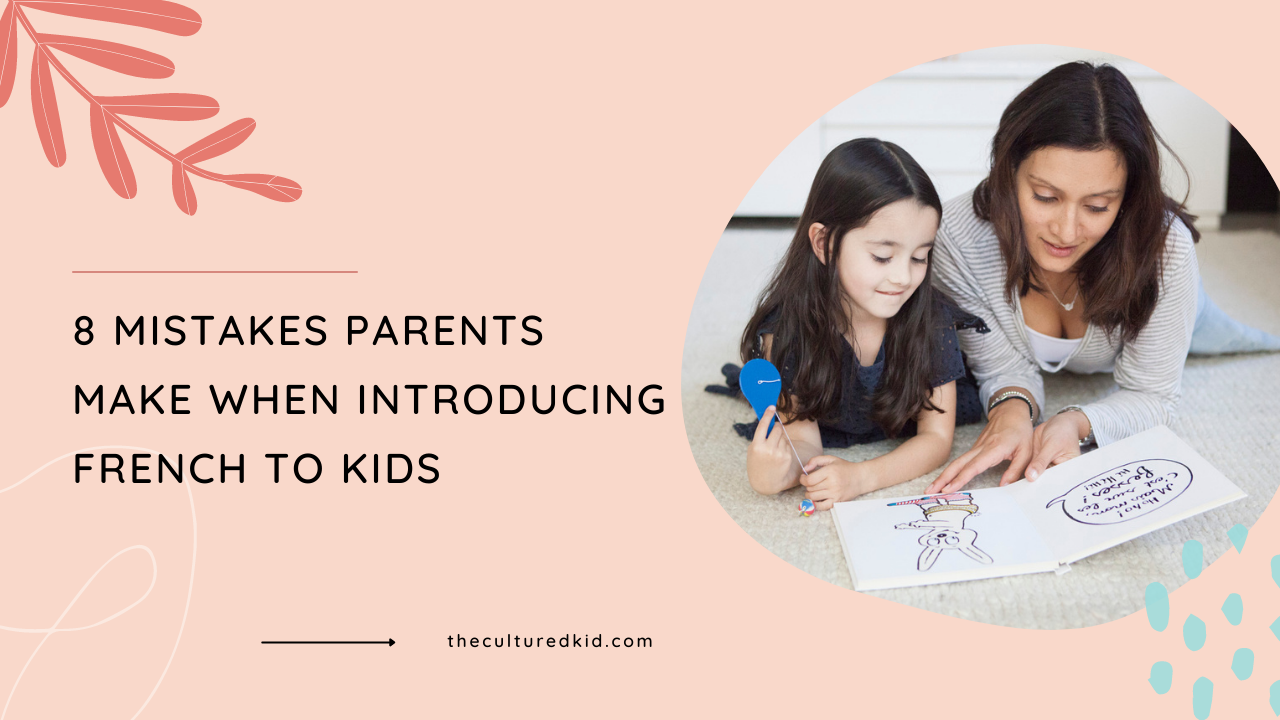8 Mistakes Parents Make When Introducing French to Kids

Learning a foreign language has many advantages and can be a fun and enriching experience for children. If you are a parent teaching your kids French, there are some common mistakes you should avoid to ensure the best possible outcome for your child.
Here are eight mistakes parents often make when introducing a foreign language to kids and how to avoid them.
- Not giving them enough exposure to the native sounds and accents
If you are not a native French speaker, it is essential to expose your child to the sounds and accents of the language. Watching videos, listening to audio lessons and songs by native speakers can help your child pick up the sounds and accents of different words. Hiring a native-speaking tutor or seeking the help of a friend or family member who is fluent in French can also provide your child with the necessary exposure to the language.
- Using a boring approach to language lessons
Language lessons should be enjoyable and fun. Unstructured play is an effective way for kids to learn. Videos, music, dance, books, and fun outings can also be used to make language learning an enjoyable experience for children. Taking a creative and fun approach to teaching French can make a big difference in the effectiveness of the lessons.
- Letting other people's opinions get to you
There will always be people who have negative opinions about teaching your child a second language. It is important to focus on the benefits of language learning and to not let unsupportive comments get in the way. Do your research, stay positive and committed, and blaze your own trail. You may even inspire friends and family to do the same for their kids.
- Not being flexible
While it is essential to have a consistent learning routine and plan, it is also important to stay flexible. A looser lesson structure can accommodate your child's natural curiosity and let their thoughts and discussions play out organically. Being too rigid in enforcing your lesson plans can hinder your child's learning and cause frustration for both you and your child.
- Believing it will happen automatically
If you speak French fluently and your child is exposed to both French and English at home, it is not necessarily the case that they will learn French automatically. Native-speaking parents still need to put in the work to create activities and lessons to specifically teach the second language. Passive bilingualism, where a child only hears a second language, can result in understanding but not speaking the language. If you want your child to become fluent in French, you need to put in the effort to teach them the language.
- Thinking slow progress is a sign to give up
Learning a language is a slow process and progress can be difficult to see in the early stages. Do not give up just because progress seems slow. Any progress is progress and quitting will not speed up the learning process. Stay committed and keep providing your child with opportunities to learn French.
- Pulling your child up on every mistake
When teaching your child French, it's important to be mindful of overcorrecting them. If they make the same mistake repeatedly, it's important to address it, but don't be too nit-picky about every small error. Sometimes, it's best to skip over the mistake and bring it up at a later time so as not to interrupt the flow of conversation.
Correcting your child too often can make them self-conscious and dampen their enthusiasm. Lessons should be fun and not a source of frustration. Instead, focus on reinforcing what they've done right and celebrate their progress. Cheer them on to keep them motivated to continue striving.
- Forgetting why you started
Teaching your child a new language like French is a big commitment and there may be times when progress feels slow or you want to give up. During those times, it's important to remind yourself of the incredible benefits and life skills you are helping your child develop. From boosting cognitive skills and fostering creativity to improving concentration and focus, bilingual children reap numerous benefits.
Write down these benefits to remind yourself why you started this language learning journey with your child. The hard work will be worth it, I promise! Joining an online or offline community of other parents who are also teaching their children French can be a great source of motivation.
If you're wondering how to get started and keep progressing with teaching your child French, download my complete roadmap to introducing a foreign language at home.
GRAB OUR FREE 'KIDS LANGUAGES MADE EASY' GUIDE
FOR NON-NATIVE PARENTS!
Discover how you can run consistent language lessons, that are fun and engaging and help your kids make the progress they deserve!
Even if you're not fluent!
We hate SPAM. We will never sell your information, for any reason.








